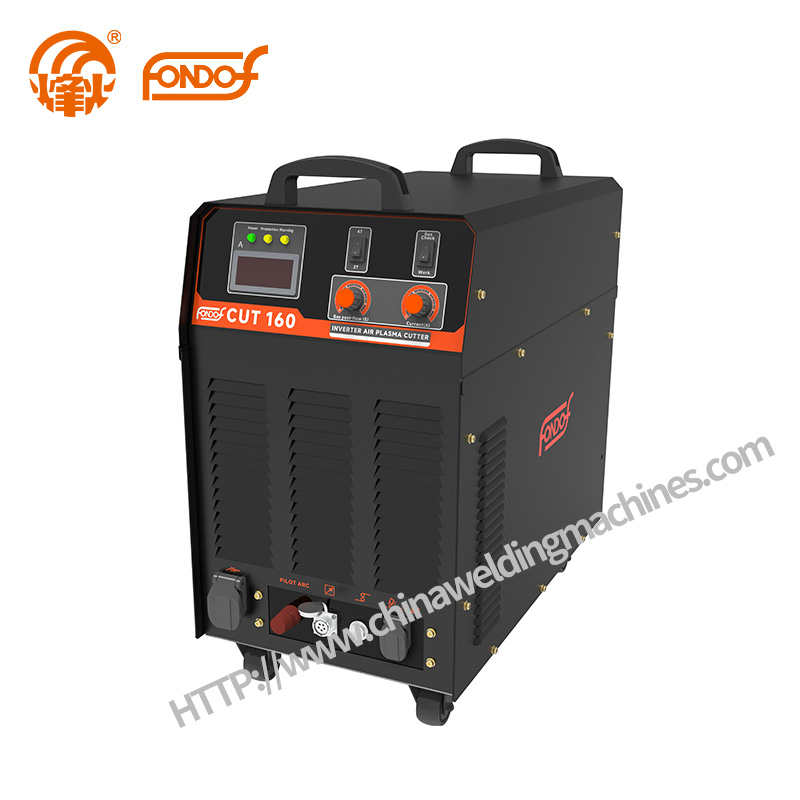A Comprehensive Guide to Plasma Cutters
We’ve taken a look at some of the most popular questions about plasma cutting. Including what a plasma cutter is used for, what a plasma cutter does, and what you can do with a plasma cutter. Find out more below!
What is a Plasma Cutter?
A plasma cutter is a powerful and versatile tool used in various industries for cutting metal and other conductive materials. It operates by creating a high-temperature, electrically ionized gas, commonly known as plasma. This superheated plasma arc can easily melt through metals, making it an indispensable tool in metalworking and fabrication.

Types of Plasma Cutters
Plasma cutters come in various types, each designed for specific applications. Here are the main types:
1. Manual Plasma Cutters
Manual plasma cutters are handheld devices commonly used for cutting smaller pieces of metal. They offer precision and flexibility, making them suitable for intricate cuts and detailing work.
2. Mechanized Plasma Cutters
Mechanized plasma cutters are designed for automated and heavy-duty cutting tasks. They are often integrated into CNC (Computer Numerical Control) systems, allowing for precise and repeatable cuts in industrial settings.
3. Portable Plasma Cutters
Portable plasma cutters are lightweight and compact, making them ideal for on-site work. They are often favored by contractors and welders who need mobility without sacrificing cutting quality.
How Does a Plasma Cutter Work?
Plasma Cutting Machine function by passing an electric current through a gas, typically compressed air or nitrogen. Here's a simplified breakdown of the process:
Gas Inlet: The gas enters the torch at high pressure, typically through a nozzle.
Electric Arc: An electrical arc is created by the cutter's power supply, ionizing the gas and forming plasma.
Plasma Jet: The plasma exits the torch as a focused jet with extreme heat.
Material Cutting: The high-temperature plasma jet melts through the metal, creating a clean and precise cut.
Advantages of Plasma Cutting
Plasma cutting offers numerous advantages, making it a preferred choice for many applications:
1. Speed and Efficiency
Plasma cutters are incredibly fast, enabling quick and efficient cutting, which is essential for meeting production deadlines.
2. Versatility
Plasma cutters can cut through a wide range of materials, including steel, stainless steel, aluminum, and more, making them versatile tools for various industries.
3. Precision
With the right equipment and settings, plasma cutters can achieve remarkable precision, minimizing material wastage.
4. Minimal Heat-Affected Zone
Compared to traditional methods like oxy-fuel cutting, plasma cutting generates a smaller heat-affected zone, reducing the risk of warping and distortion in the cut material.
Applications of Plasma Cutting
Plasma cutting finds applications in diverse industries, including:
Metal Fabrication: Used for cutting and shaping metal sheets and plates.
Automotive: Ideal for precision cutting in auto body repair and customization.
Construction: Used for cutting steel beams and other structural materials.
Aerospace: Essential for crafting intricate parts with precision.
DIY and Hobbyists: Portable plasma cutters cater to hobbyists and DIY enthusiasts.
Choosing the Right Plasma Cutter
Selecting the right plasma cutter depends on your specific needs and budget. Factors to consider include:
Cutting Thickness: Ensure the cutter can handle the thickness of the materials you work with.
Duty Cycle: Consider the machine's duty cycle for continuous operation.
Portability: Determine whether you need a portable or stationary unit.
Additional Features: Look for features such as CNC compatibility, pilot arc, and consumable life.
Safety Precautions
Safety should always be a priority when working with plasma cutters. Here are some essential precautions to follow:
Wear Appropriate Gear: This includes safety glasses, welding gloves, and flame-resistant clothing.
Work in a Well-Ventilated Area: Plasma cutting generates fumes, so proper ventilation is crucial.
Inspect Equipment: Regularly check the torch, cables, and gas supply for any signs of wear or damage.
Follow Manufacturer's Guidelines: Adhere to the manufacturer's instructions and guidelines for safe operation.
Conclusion
In conclusion, plasma cutters are invaluable tools in the world of metalworking and fabrication. They offer speed, precision, and versatility, making them indispensable in a wide range of industries. By understanding the types, working principles, advantages, and safety precautions associated with plasma cutters, you can make informed decisions and achieve superior results in your cutting tasks.
190
0
0
All Comments (0)
If you are interested in sending in a Guest Blogger Submission,welcome to write for us!




Comments